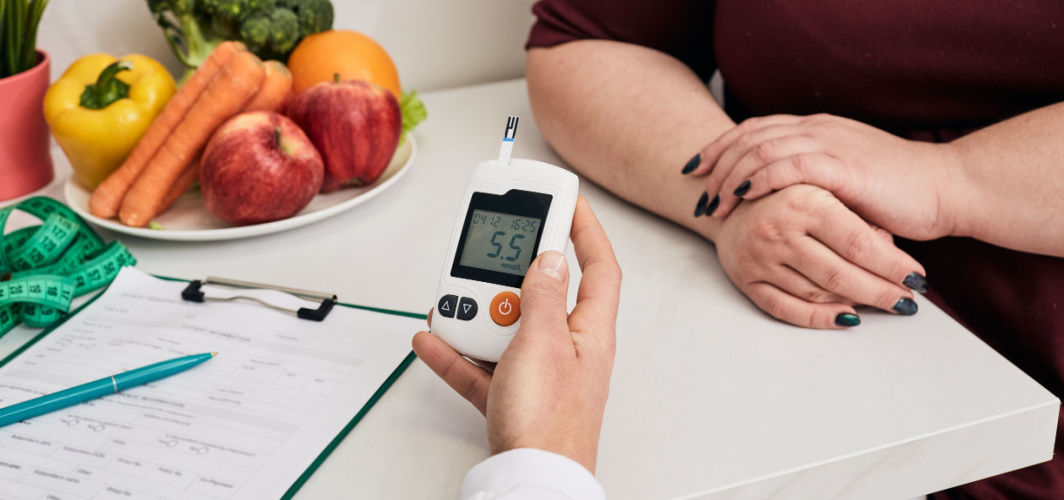Diabetes Management
Assessing the Benefits of Beetroot in a Diabetes Diet
2 min read
By Apollo 24|7, Published on - 24 May 2024
Share this article
0
0 like
.jpg?tr=q-80)
Understanding what to eat and what to avoid can be a challenge when living with diabetes. When thinking about your food options, if you ever wondered, 'Is beetroot good for my diabetes?' The answer is yes. Beetroot can indeed be a valuable addition to your diabetic diet, thanks to its nutritional profile and low glycaemic index (GI).
Understanding Beetroot’s Role in Blood Sugar Control
Beetroots come with a medium GI, The GI is a measure of how fast blood sugar levels rise after a meal. On the other hand, the glycemic load of beetroots is only 5, which is very low. This means that beetroots should not have a major effect on blood sugar levels because the total carb amount in each serving is low, This is an excellent attribute for individuals managing diabetes. Moreover, beetroots are high in dietary fibre, which can help regulate your blood sugar levels and enhance overall glucose control.
Ways to Incorporate Beetroot in Your Diet
Including beetroots in your diet can be easy and varied. You can enjoy them raw in salads, roasted as a side dish, or even blended into smoothies. However, while incorporating this vibrant vegetable into your meals, remember to keep a check on the portions to ensure you do not exceed your daily recommended carbohydrate intake.
The Nutritional Profile of Beetroot
This bright-coloured veggie is not just pleasing to the eye but also packed with essential vitamins and minerals that contribute to your overall health. Beetroots are low in calories and rich in dietary fibre—factors that aid diabetes management. Besides, they also contain Vitamin C, folate, potassium, and iron—all important nutrients for maintaining good health. A bonus is the presence of antioxidants like betalains that have anti-inflammatory properties.
Monitoring Your Diet
While beetroots can be beneficial for individuals with diabetes, it's crucial to remember that managing your disease isn't just about incorporating beneficial foods, but also about maintaining balanced meals and monitoring portion sizes. Always keep an eye on the total carbohydrate content of your meals and adjust portion sizes accordingly to maintain blood glucose levels within a healthy range.
Diabetes Management
Consult Top Diabetologists
View AllLeave Comment
Recommended for you
.jpg?tr=q-80)
Diabetes Management
A Diabetic-Friendly Snack Which You Can Easily Carry With You?
Managing diabetes doesn't mean you must forgo tasty snacks. There are numerous diabetic-friendly snacks available, full of flavour yet low in glycemic index. Healthy snacking can help regulate your blood sugar levels throughout the day. From nuts and seeds to fruits and smoothies, the list is long and diverse. The best snacks for diabetics are not only healthy but also easy to carry wherever you go. And remember, always consult your doctor before making any changes to your diet.

Diabetes Management
Diagnosing Diabetes Early: Know How To Prevent Complications
Early diagnosis of diabetes brings several significant benefits. It facilitates prompt treatment, prevents future complications, enables to plan lifestyle changes, promotes self-management, and provides support. It also helps in controlling blood sugar, avoiding long-term health complications, facilitating healthy habits, taking proper medication, and monitoring blood sugar for better disease management.
.jpg?tr=q-80)
Diabetes Management
How Can Diabetics Manage Their Condition While Working Night Shifts?
Altering your meal times, monitoring your medication schedule, ensuring quality sleep, and incorporating regular physical activities can provide a healthier path to managing your glucose levels. Learn more about effectively managing diabetes during night shifts and how the Apollo Super 6 programme can support you in your journey.
Subscribe
Sign up for our free Health Library Daily Newsletter
Get doctor-approved health tips, news, and more.
Visual Stories

8 Fruits That are Incredibly Healthy for Diabetes
Tap to continue exploring
Recommended for you
.jpg?tr=q-80)
Diabetes Management
A Diabetic-Friendly Snack Which You Can Easily Carry With You?
Managing diabetes doesn't mean you must forgo tasty snacks. There are numerous diabetic-friendly snacks available, full of flavour yet low in glycemic index. Healthy snacking can help regulate your blood sugar levels throughout the day. From nuts and seeds to fruits and smoothies, the list is long and diverse. The best snacks for diabetics are not only healthy but also easy to carry wherever you go. And remember, always consult your doctor before making any changes to your diet.

Diabetes Management
Diagnosing Diabetes Early: Know How To Prevent Complications
Early diagnosis of diabetes brings several significant benefits. It facilitates prompt treatment, prevents future complications, enables to plan lifestyle changes, promotes self-management, and provides support. It also helps in controlling blood sugar, avoiding long-term health complications, facilitating healthy habits, taking proper medication, and monitoring blood sugar for better disease management.
.jpg?tr=q-80)
Diabetes Management
How Can Diabetics Manage Their Condition While Working Night Shifts?
Altering your meal times, monitoring your medication schedule, ensuring quality sleep, and incorporating regular physical activities can provide a healthier path to managing your glucose levels. Learn more about effectively managing diabetes during night shifts and how the Apollo Super 6 programme can support you in your journey.

